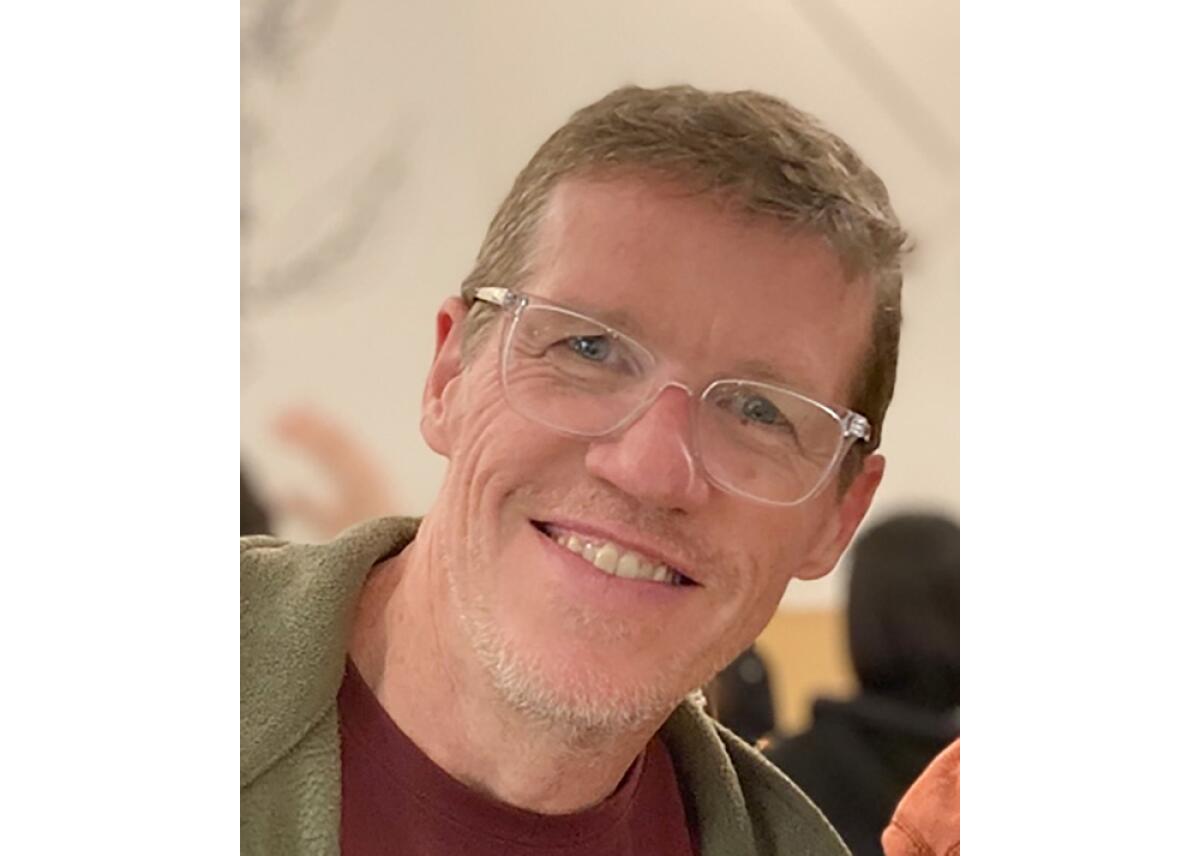Guy Moon dead: ‘Fairly OddParents’ composer dies in traffic accident
Composer Guy Moon, who scored a handful of popular animated TV series, and was most known for Nickelodeon’s “Fairly OddParents,” has died. He was 63.
The Emmy nominee was killed Thursday morning in a traffic collision, his family announced in a Facebook post on Saturday. Savannah Moon, the composer’s daughter, said in a phone interview that her father was riding his Vespa scooter when he died. The Los Angeles Medical Examiner’s Office confirmed on its database that Moon died of traumatic injuries.
Moon’s three children, daughters Chelsea and Savannah and son Dusty, fondly remembered the composer in phone interviews as a “walking jukebox” who had an accepting, playful and peaceful approach in his personal and professional lives. He was a devoted husband, father and grandfather, his family said.
“There was always music but it was never about him being super good at music even though he was just so incredibly talented,” Dusty said. “The music was never about him. It was just about love and connection.”
“He was very good at highlighting other people and highlighting what was important, whether it was through music or whether it was through what he said to people,” Savannah said.
Guy Moon long scored the magical antics of “Fairly OddParents,” an animated series that tracks the adventures of Timmy Turner, a 10-year-old boy with fairy godparents who grant him wishes to solve his everyday problems. Moon was the show’s composer for more than a decade from 2001 to 2017 and scored more than 150 episodes, according to IMDb. He earned four Emmy nominations for his work on “Fairly OddParents.”
A Wisconsin native, Moon also worked on “Fairly OddParents” creator Butch Hartman’s other series “Danny Phantom” and “T.U.F.F. Puppy.” Hartman mourned Moon in an Instagram story Saturday.
“I have no words yet because there are none adequate enough,” Hartman said, adding that he will make a statement at a later time.
Moon, a graduate of the University of Arizona School of Music, started his career in the 1980s, contributing to projects including “The Land Before Time,” the animated “Addams Family” series, “Leave It to Beaver” and “Johnny Bravo.” In the mid-’90s and early aughts, Moon supplemented his series work with films including “The Brady Bunch Movie,” “Minority Report,” “Fight Club,” “Evan Almighty” and “Leap Year.”
His Nickelodeon credits also include “ChalkZone,” several “Fairly OddParents” and “Jimmy Neutron” crossover specials, “Back at the Barnyard” and “Big Time Rush.” In recent years, Moon turned his focus to live-action and independent projects including TV drama “The Green Veil” starring John Leguizamo and the 2024 film “Forty-Seven Days with Jesus.” He was last credited in 2025 as a composer for “The Artist,” a series from streaming service the Network.
Moon, an Annie Awards and BMI Film & TV Awards winner, incorporated his passions for music in family life, from expressing his daily observations in a sing-songy manner to playing the piano to entertain friends and family. Despite the accolades for work, Moon would have been most proud of his collaborations with his children, who all shared his musical passions, Chelsea said.
“We are his legacy. He was so proud of us and so proud to work with us,” she said, adding “he would probably say that was his greatest life’s accomplishments — to have us.”
Moon’s children underlined his devoted faith, which he balanced with his full-time career as a composer. His family said Moon often melded his faith with his love and his connections in the music world, from producing church musical events to introduce fellow worshipers to new forms of Christian music to directing his church’s youth ministry alongside his wife when his children were younger.
“He just embodied the heart of Jesus to welcome everyone. He just deeply loved God in a very simple way where there was never a moment where anyone felt excluded in his presence or othered,” Chelsea said.

Guy Moon’s three adult children described him as a “walking jukebox” who had an accepting, playful and peaceful approach in his personal and professional lives.
(Natalie Wright-Ruiz )
“He was not exclusive and he was not an elitist, “ Savannah said. “He was just so generous with his time and his acceptance of people.”
Moon incurred tinnitus following an injury to his eardrum in recent years, which impacted his ability to work. Still, he remained adventurous and enjoyed riding around San Pedro on his Vespa, Chelsea said.
In addition to his children, Moon is survived by his wife, Jennifer Moon, his parents, two older sisters and seven grandchildren with an eighth on the way.
The family said in its Facebook statement that they plan to celebrate Moon’s life on Feb. 7, the composer’s birthday. The memorial in Los Angeles will be followed by another in Wisconsin at a later date.

